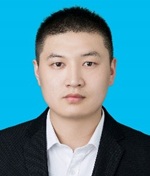Special Session: Advanced Power Electronics Technologies for Renewable Energy, Storage, and Grid Integration
As the global energy structure undergoes a transition towards low-carbon and sustainable development, the large-scale deployment of renewable energy sources (such as solar and wind energy), the innovation of efficient energy storage technologies, and the rapid development of smart grids have become the core paths to achieve the goal of carbon neutrality. However, this process faces many technical challenges: the intermittency and volatility of renewable energy pose higher requirements for grid stability; energy storage systems need to achieve a balance among energy density, response speed, and lifespan; and the deep integration of the grid urgently requires more flexible, reliable, and intelligent power electronic solutions.
Power electronics technology serves as the "bridge" connecting energy production, storage, and consumption, playing an irreplaceable role in improving energy conversion efficiency, enhancing system controllability, and optimizing dynamic response. Breakthroughs in wide bandgap semiconductor devices (such as SiC and GaN), the design of advanced converter topologies, grid-connected control technologies, digital-twin and AI-driven control strategies, and the improvement of standardization and interoperability are redefining the boundaries of power electronic systems. At the same time, new power electronic technologies also need to address engineering challenges such as high-power density, extreme condition adaptability, cost optimization, and large-scale application.
Against this backdrop, this conference aims to explore the latest progress and future trends of power electronics technology in the fields of renewable energy, energy storage, and grid integration. Through this conference, we hope to promote exchanges and cooperation between the academic community and the industrial sector, and jointly promote the application and development of power electronics technology in the field of renewable energy.
Topics:
* Advanced power electronics technology in renewable energy generation systems
* Power electronic interface and energy management of energy storage system
* Stability and coordinated control of power electronics-dominated grids
* Wide bandgap semiconductor devices and packaging technology
* Intelligent control and digital technologies

Assoc. Prof. Tao Zhao, Qingdao University, China
Tao Zhao is currently working as an associate Professor at the School of Electrical Engineering, Qingdao University, Qingdao, China. He has been committed to innovative research in the fields of power electronics and new energy generation. His main research directions include modeling and control technology of cascaded H-bridge converter, photovoltaic generation technologies, and energy storage technologies. He has published over 30 academic papers, and holds 24 invention patents.
Submit Method:
1, submit it via the link: https://confsys.iconf.org/submission/aceee2026 (after entering the link, click on the corresponding topic)
2, send your manuscript to aceee@vip.163.com with subject "Submit+Special Session-2+Paper Title". (请通过邮件发送稿件,邮件题目:Submit+Special Session-2+Paper Title)